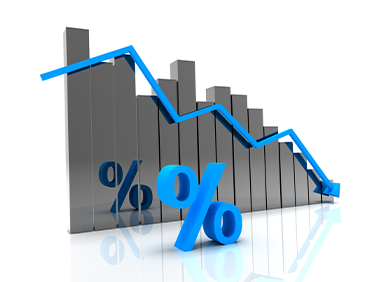
In a recent report, HC Brokerage shared their valuation of GB Auto updating the market on the auto/auto related business. HC maintains their OW rating on compelling valuation.
-
Auto and auto related operations are gaining traction on improved market dynamics and GB Auto presence; auto business to revert to profits this year, on our numbers
-
We forecast GB Capital to continue delivering solid earnings growth and impressive NIMs, filtering through to a 4-year bottom line CAGR of c11%
-
We slightly cut our 12M TP c3% to EGP5.13/share on lower GB Capital valuation, but maintain our OW rating on compelling valuation
Noha Baraka, the head of consumers at HC commented that: “Back on track: The auto and auto related business had been loss-making for almost 8 consecutive quarters. This was mainly driven by a series of events significantly hurting Egypt’s automotive sector. Starting primarily with the delayed availability of foreign currency in 2015, then the EGP floatation, moving to the fierce competition and price wars following the alleviation of import tariffs on European cars, then the “Let It Rust” campaign, and most recently the coronavirus outbreak. However, recent market numbers suggest an improvement since the government lifted some of its precautionary measures leading to the resumption of the licensing and registration of cars, and a c26% y-o-y increase in 3Q20 local passenger car sales volume. Accordingly, we expect a marginal improvement in sales in 4Q20 to reach c43,800 cars, a c9% y-o-y increase, as consumer demand is likely to remain depressed in the short term. Going forward, we expect the PC market to gradually recover and grow at a 4-year CAGR of c10% aided by pent-up demand, lack of public transportation and infrastructure, and not to mention the increased momentum coming from falling interest rates and stable FX rates. We are now more bullish on GB Auto’s outlook given its new launches of more competitive CKD models such as the Chery Arizzo and the Hyundai Accent RB to recoup some of the lost Verna sales, and the introduction of new CBU models such as the Hyundai CN7, along with a focus on high-end cars such as Tuscon, not to mention discontinuing all loss making models. This should be enough for the company to regain some of its lost market share and most importantly partially restore its profitability, despite fierce competition, in our view. We expect GB Auto PC volumes to grow at a 2020–24e CAGR of c13%, implying a terminal market share of 20.8% by 2024e from 16.5% in 2Q20. Similarly, the 3-wheeler business has begun to gain traction once again after being severely hit on a series of new licensing limitations, thanks to strong market dynamics, while the 2-wheelers has continued to show strong performance especially after its cut in prices, which allowed GB Auto to capture some market share gains. We expect volumes to grow at a 2020–24e CAGR of c14% fueled by a robust underlying demand. However, the main challenge will be coming from the regional PC business, in our view, in light of the company’s decision of liquidating its Hyundai brand in Iraq, pushing the remaining 1,700 kit this year, which will weigh on the auto business’ top line. Accordingly, GB Auto announced that it has secured its representation in Iraq through launching MG brand (which is of a higher margin compared with Hyundai), starting with only 250 kits on a monthly basis to assess the market perception of the new brand. Therefore, we opt to be conservative and assume the new MG brand representation in Iraq to stand at 500 cars in 2020 and 3,000 cars in 2021, before growing at a 2021 –24e CAGR of c3%, on average. Thus, our numbers point to auto and auto related 2020–24e revenue CAGR of c13%, some c28% lower than our previous estimates, dragged down by lower regional PCs operations, and to a lower extent due to lower local PC market share for GB Auto.”
“The impact on profitability is more profound with 3Q20 witnessing profits generation: As far as margins are concerned, we expect continued portfolio optimization through the rolling out of new models, in addition to a stronger EGP/USD rate should help the company defend its high margins in the short term. We see auto and auto related business’ gross profit margin expanding 2.9 pp to reach 13.1% in 2020e, however, we believe these high margin levels are unlikely to be sustained over the long-run, reflecting the intensified competition that GB Auto is facing, especially in the PC business. Therefore, we forecast the terminal gross profit margin for the auto and auto related business to stand at 12.3%, still 2.5 pp higher than our previous estimates. We expect the business EBITDA margin to increase to 7.7% in 2020e, from 5.5% in 2019, before normalizing at an average of 5.3% over our forecast period on the back of high SG&A expenses, and as 2Q20 EBITDA was partially inflated by the sale of a land plot. We also see the line of business benefiting from declining interest rates, given its highly leveraged nature, and forecast a c48% cut in 2020–23e interest charges bill. We now expect the auto and auto related business to realize profits starting 3Q20, and be value accretive, removing an overhang on GB Auto’s operations.” Noha Baraka added.
Noha continued: “GB Capital to continue to shield overall company’s profitability: GB Capital has continued to be the company’s star performer despite the pandemic, expanding its EBIT by c21% y-o-y in 1H20, and its loan portfolio by c14% from the end of last year to EGP10.1bn, with NPLs remaining in check at 1.5%. We expect loan portfolio to grow another c10% to reach EGP11.1bn by year end and we do not rule out securitization taking place in 4Q20. We believe GB Capital will continue to deliver solid earnings growth and impressive NIMs until 2021e, despite the cut in interest rates, thanks to its asset/liability duration mismatch through lending at fixed interest rates while borrowing at variable ones, along with the company’s efforts to get preferential rates from banks. Post 2021e, we expect to see the increased competition to cool off NIMs by 1.8 pp to stand at 16.3% by 2024e and largely stabilize at these levels. Accordingly, we expect the business bottom line to grow at a 2020–24e CAGR of c11%, c5% lower than our previous net income estimate, mainly on the back of lower loan portfolio growth and higher provision expenses. More securitization taking place should bolster earnings growth, in our view.”
“Maintain Overweight on compelling valuation: We raise our valuation for auto and auto related business c57% to EGP0.93/share, mainly on the back of our new estimates, lower working capital needs fueled by stronger EGP/USD rate, in addition to using a lower average cost of capital (13.9% versus 14.9% previously). Our valuation of EGP0.93/share puts auto and auto related business at a 2021e EV/EBITDA multiple of 4.8x and an EV/IC of 1.1x. As for GB Capital, we continue to value the business separately, yielding EGP4.20/share, slightly lower from our previous valuation of EGP4.71/share, based on equally weighted global 2021e peers’ average P/B and P/E multiples of 0.9x and 9.3x, respectively, using our 2021e net profit figure of EGP693m. Our 12-month target price of EGP5.13/share implies a potential return of c89% over the 4 November closing price of EGP2.71/share. We therefore maintain our Overweight rating. In our view, the valuation remains compelling, with the stock trading at a 2021e P/E multiple of 3.5x, a c76% discount to its peers’ implied multiple of 14.8x. GB Auto investment case is gaining traction capitalizing on GB Capital’s ongoing solid performance, in addition to a turnaround in the auto and auto related business, lowering the pressure on the group’s balance sheet and hence creating some room for FCF generation, in our view. This should be enough to lift the overhang on the stock performance given that for at least the last year the market has not been assigning any value for the auto business, and has even undermined the value of the group’s financing arm. The long-awaited automotive directive could add further upside to our auto and auto related business numbers, if it goes through.” Noha Baraka concluded.


